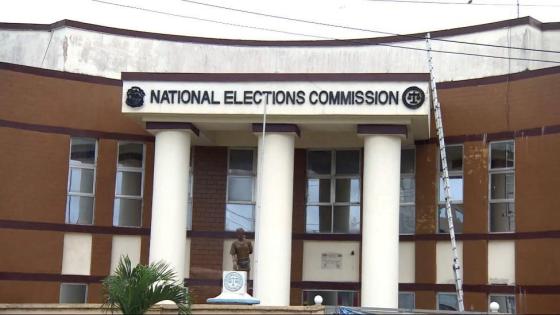Liberia: NEC, Political Parties Sign MOU on Gender Quota

— The signing comes a few months after President George Weah voted a progressive amendment to the new election law, which sought to make 30% of gender representation mandatory.
The National Elections Commission and political parties have signed an MOU to ensure a minimum of 30% female representation for October 10 elections.
The National Elections Commission has signed a 30% gender qouta MOU with political parties to increase the slot of female candiates for October 10 polls.
The agreement, which voluntarily enforced Section 4.5 of the country’ Elections Law, would require political parties and coalitions, to submit a “candiates listing” that contains minimum of 30 percent female representation.
The MOU comes a few months after President George Weah voted a progressive amendment to Section 4.5 election law, which sought to make 30% of gender representation mandatory. It would have empowered the electoral body to fine or delist any political parties that failed to adhere to the gender quotas.
But now, NEC is dependent on the willingness of political parties and coalitions to uphold Section 4.5 of the law, which called on them to “endervor” and ensure that their candidates roster consists of no fewer than 30 percent representatives from each gender.
“The United Nations in Liberia, through UN Women and the United Nations Development Programme commends political parties and the National Elections Commission on the signing of an MoU on Section 4.5 of the Elections Law, which governs the nomination of candidates for elective positions in the upcoming elections,” the UN said in a release.
“The United Nations calls on political actors to consistently enforce the MOU and stands ready to support national partners – including political parties – to develop or reform laws and policies that provide for temporary special measures, including gender quotas for elected and appointed positions, in line with Liberia’s international, regional, and national commitments.”
The UN push for gender quota comes as women vying for political seats in Liberia faced huge challenges, including entrenched traditional norms, cultural practices, limited education, which have hindered gender equality in politics.
The country is currently ranked 162 out of 185 on the Inter-parliamentary Union’s list of women in national parliaments with women occupying less than 11 percent of the 103 seats in the Legislature despite constituting more than 50 percent of the population.
The percentage of women has also fallen since 2006 — a trend that correlates to a decrease as male candidates are often preferred over female candidates.
The 2017 presidential election is a case in point, with none of the 20 candidates being women. Additionally, only 10% of the candidates for the House of Representatives were women, further highlighting the need for action to address gender disparity in Liberian politics.
Meanwhile, the UN has lauded political parties that have taken concrete steps to include 40 percent or more women on their candidate listings.
This, the UN, noted demonstrates a strong commitment to fostering more internally democratic political parties and to achieving a more inclusive and equitable Liberia.
“The United Nations also recognizes the important role of the Interparty Consultative Committee in drafting and validating the MoU,” the released added. “This MoU on candidate nomination follows the signing of the Farmington Declaration which reaffirms the commitment of political parties to implement the Violence Against Women in Elections Protocol, and to foster peaceful, more inclusive elections. ”
